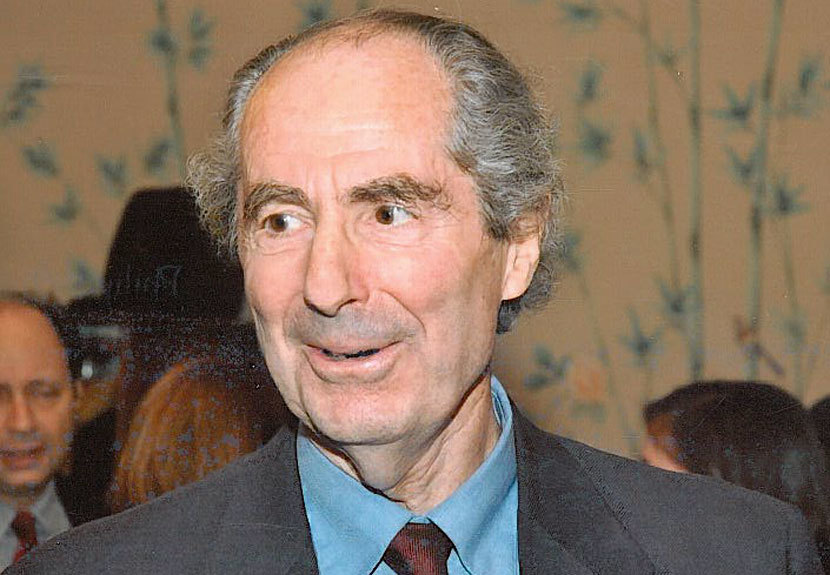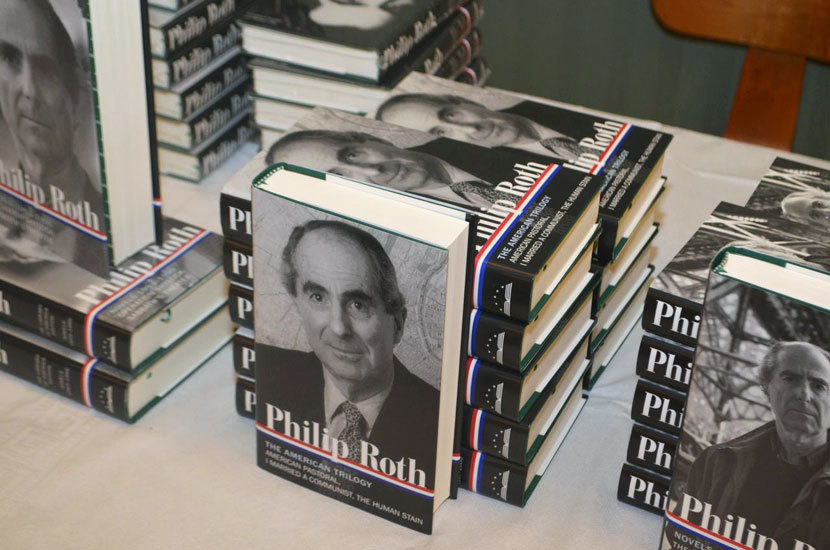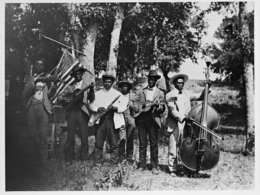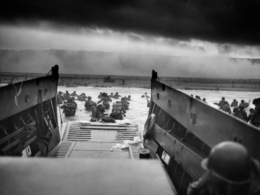In the following essay, which originally appeared in The Jewish Week, Library of America President and Publisher Max Rudin reflects on his friendship with the late Philip Roth and their fourteen-year collaboration on the LOA edition of Roth’s collected works. (In the days ahead, LOA will post an online tribute page with additional reminiscences and reflections from writers who were shaped and influenced by Roth’s work.)

No one wrote so well about what it was like to have parents in America, where generations supplant each other so quickly and so ruthlessly. The combination of rage, insult, tenderness, deep respect, pity, helpless love. I think that’s what first hooked me when I started reading Philip Roth at 16, that and the comedy, the high-wire opera buffa performance of his breakthrough book Portnoy’s Complaint, where the satire is targeted both outward and inward. For these reasons and others, Roth’s books always gave me the uncanny feeling that the voice on the page was a more honest and faithful version of the voice in my head, an experience I now know other readers have shared.
Alex Portnoy is on the analyst’s couch (rather than, say, on the bus with the Merry Pranksters) because his allegiance to his parents and their notion of the Good Jewish Son is at least as strong as his desperate urge to throw off their taboos. Portnoy is sure their crippling inhibitions are the product of a vitality-choking moralistic self-censorship once intended to protect Jews from anti-Semitism, a defense postwar America has made irrelevant. This allows Roth to harness a version of the liberating, rule-breaking energies of the 1960s, and use it to blow the doors off neo-Jamesian novelistic decorum, all while keeping his comic distance. The bad joke is that people misread Portnoy as Roth, and his pitch-perfect ventriloquism of confessional rant as simple confession—a misreading that would provide Roth his comic material for The Ghost Writer and its sequels, an ironic, poignant, hilarious chamber piece in four movements on the unpredictable consequences of art.
But Roth was always more in sympathy with his parents and their generation than these adversary readers understood, and that would become increasingly clear as his career unfolded. Lower-middle-class Jewish Newark, his family, the Weequahic neighborhood—these appear again and again, forming a through line and offering a touchstone through the many acts of Roth’s brilliant, shape-shifting literary journey. They stand on the one hand for bedrock decency, hard-working, self-sacrificing devotion to family and especially to children, the opposite of Portnoy’s self-focused schrei-ing. In American Pastoral, the narrator, Nathan Zuckerman, speaks of “those slum-reared Jewish fathers . . . for whom everything is an unshakable duty . . . for whom the most serious thing in life is to keep going despite everything. And we were their sons. It was our job to love them.”
Roth himself was very much the child of his parents and their world. The writer who went to work nearly every day for fifty-one years at his stand-up desk, well into his eighth decade when other writers have long since trimmed their sails, was recognizably the son of his insurance-salesman father. The decency, concern, menschlichkeit were also, as his many friends will attest, fundamental to who he was. When my infant son was in the NICU, he called me every day for a month: “How’s the boy doing?” When I told him after that month that I was afraid to say anything, but it looked like my son was finally turning the corner, he told me, “Nothing you say will make any difference.” I took that at the time as an expression of his disdain for magical thinking, his fierce devotion to looking at the world without illusion. I now hear it differently, as his comforting me, assuring me that I had enough to worry about without the needless guilt and self-inflicted pain I would bring upon myself by believing that I could somehow change the situation with my words.
Roth’s Newark also embodies something else—a hopeful American moment, a vision of the multiethnic democratic ideal that came out of the war against the Nazis, an ideal in which it made sense to identify oneself as a “Newark Jew” and “an American,” since we’re all from someplace and we’re all Americans. This understanding made Roth forever allergic to the limitation and qualification he sensed in the terms “American Jew” and “Jewish American,” famously insisting that he was not a “Jewish American writer”—he was an “American writer” or he was nothing. His allegiance to this American ideal sensitized him to the dark, anti-democratic currents in American culture, bitterly satirized first in Our Gang at the close of the ’60s, when he felt Nixon’s America had lost its way, and then explored most fully in the American Trilogy, where domestic terrorism, McCarthyism, and an insidious brand of bludgeoning, sanctimonious moralism all threaten democratic decency.
If the first American theme, the one that concerns character, finds its fullest expression in Patrimony, Roth’s deeply moving elegy for his father, this second theme, the persistence of anti-democratic menace, culminates in The Plot Against America; that book, imagining a twentieth-century America that shared the fate of Europe, becomes a meditation on Jewish and American fragility and how lucky we have been. Plot, in a way, closed a circle begun with Portnoy. In the earlier work, “nemesis,” to use Roth’s term, is figured by Sophie Portnoy’s castration-threatening kitchen knife, quashing all deviations from Good-Jewish-Boy-ness and thwarting forever Alex’s fantasy “to be bad—and enjoy it!” In Plot, the knives, and the stakes, have changed. When, on their way home from an “assimilation camp” for Jewish children, the “Roth” family’s car breaks down, an immense industrial plant looms out of the midnight darkness before them: “a plant that was, if you believed the sign the size of a billboard, ‘The World’s Biggest Manufacturer of Axes, Hatchets, and Knives.’” The menace here seems to emanate from the American heartland itself.

Roth’s immersion in American history, a study he devoted himself to up until his death last week, reinforced his sense of the chthonic power of illiberalism, violence and hate in America, “the maxim,” as he put it, “that makes our lives as Americans as precarious as anyone else’s: all the assurances are provisional, even here in a two-hundred-year-old democracy.” Many readers took the book as prophecy; read another way it seems to me a son’s love letter to the past. A letter acknowledging the historical realities of the world in which his parents struggled, and that produced the self-policing obsession with “goodness” that Portnoy rails against; a letter of loving gratitude for a free childhood blissfully protected.
Roth the Jew, Roth the American. When Library of America was at work on the second of ten Roth volumes, one of our editors saw him come off the elevator. “Don’t I recognize you from one of our book jackets?” the editor gamely asked. “Yes,” Philip said, “I’m Louisa May Alcott.” As always with him, the joke had layers: Roth the “obscene” enfant terrible of American letters vs. the beloved author of Little Women; New York energy vs. New England decorousness; “new” Jews vs. old WASPs. But it was also an assertion of kinship. Philip was fiercely proud of the Library of America edition, which was for him a recognition of how he understood his vocation: “As a novelist I think of myself, and have from the beginning, as a free American and . . . as irrefutably American, fastened throughout my life to the American moment, under the spell of the country’s past, partaking of its drama and destiny, and writing in the rich native tongue by which I am possessed.”
In the end Roth chose a burial plot in Bard College Cemetery. Hannah Arendt is interred there, and his friends Norman Manea, a Romanian Jewish writer, and Leon Botstein, the president of Bard, live in close proximity. It’s a long way from Newark. On the other hand, Roth said he wanted to be buried near Jews so he has someone to talk to.



